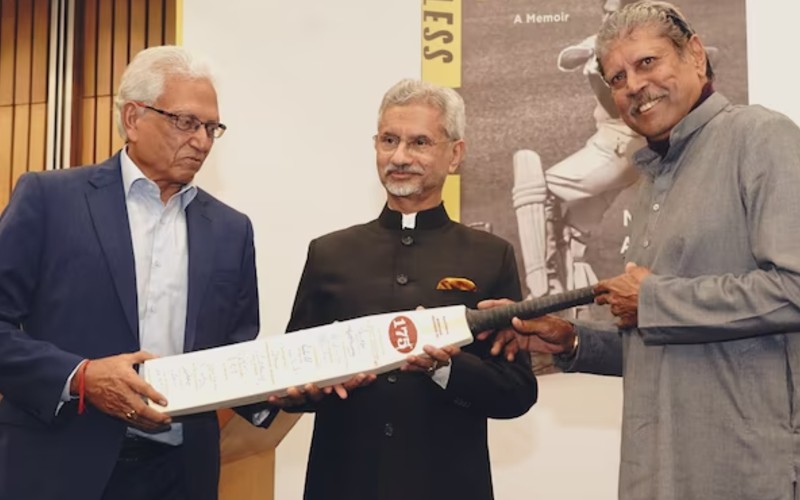The enduring diplomatic tensions between India and Pakistan have inevitably influenced their cricketing rivalry, making every encounter a spectacle of intense anticipation and global attention. The complex dynamic between the two nations often transcends the cricket field, shaped significantly by political and social narratives over the decades.

This connection between cricket and India’s foreign policy was eloquently highlighted by India’s Minister of External Affairs, S. Jaishankar, during the launch of Fearless, the memoir of former Indian cricketer Mohinder Amarnath. Drawing a fascinating parallel, Jaishankar likened India’s evolving diplomatic stance towards Pakistan to a cricketing adjustment.
Referring to Amarnath’s shift from a traditional side-on batting stance to an open-chested one, S Jaishankar remarked, “You said you played them better because you moved to an open-chested position. I couldn’t find a better description for our Pakistan policy at that time.”
WATCH – Shikhar Dhawan Arrives In Kathmandu For Nepal Premier League, Receives Grand Welcome
S Jaishankar emphasized that India’s rise in world cricket, particularly after the iconic 1983 World Cup triumph, mirrored the country’s growing diplomatic confidence. He noted that the victory not only redefined Indian cricket but also marked a turning point in India’s stature on the global stage. “It was not just the inflection point; it was the ‘Man of the Match’ of inflection points. While Pakistan and Sri Lanka also had their moments, the 1983 win transformed India’s cricketing destiny more profoundly than anywhere else,” he stated.
An immense pleasure to release former Indian Cricketer Mohinder Amarnath’s memoir ‘Fearless’.
Thanked the legend for all the memories. His composure, competence and character hold many lessons, for cricket, for life and surely for diplomacy. pic.twitter.com/umQTqZzSGP
— Dr. S. Jaishankar (@DrSJaishankar) November 28, 2024
Further, S Jaishankar drew parallels between diplomacy and cricket, likening negotiations to the unpredictable nature of the sport. “Like cricket, diplomacy involves multiple players, varying conditions, and the occasional unpredictability of umpiring decisions. Whether at home or abroad, the essence lies in outthinking the opposition and maintaining a competitive spirit. Every encounter demands resilience, strategy, and the determination to win,” he added.
WATCH – Temba Bavuma’s Thumb Stuck in Helmet Grill: A Lighthearted Moment Amidst Dominance
The event was graced by several notable figures, including Kapil Dev, the captain of India’s 1983 World Cup-winning team. Amarnath, who earned the Player of the Match award in the historic final at Lord’s for his all-round brilliance, received high praise from Jaishankar for his composure and character.
The minister described these traits as invaluable lessons not only for cricket but also for life and diplomacy. The launch served as a poignant reminder of how cricket and diplomacy often intertwine, reflecting the broader narrative of a nation’s evolution.
